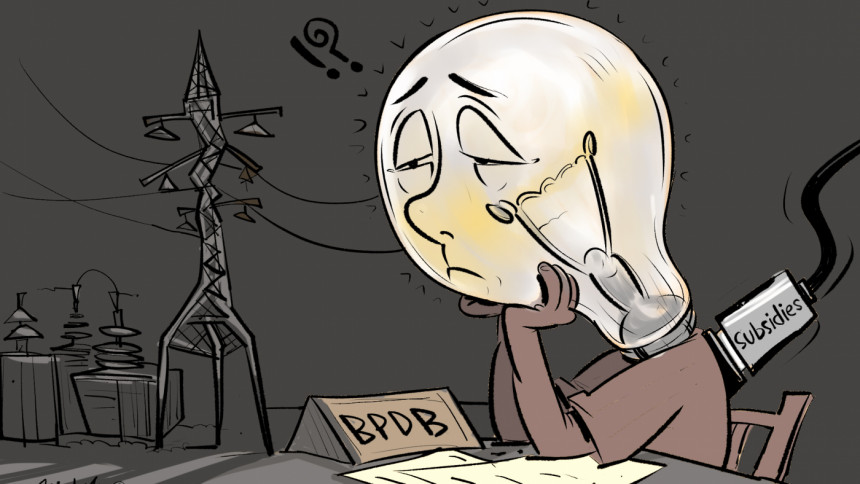Persistent power outages must be addressed

We are concerned about the frequent power outages that have put citizens in a state of distress. In many areas, according to one report, residents are having to endure up to 12-14 hours a day without electricity. This has caused immense suffering, particularly amid sweltering temperatures, which are likely to go down with increased rainfalls expected. But any relief from heat will not immediately lead to a relief from power outages because of supply problems, warned the finance adviser. This situation is disrupting not only daily life but also businesses, industries, and essential services.
According to our findings based on data from the Power Grid Bangladesh PLC, the power supply shortfall reached 2,312MW early Tuesday, a record in recent weeks, with Rajshahi, Rangpur, Cumilla, Mymensingh, Sylhet and Dinajpur being the hardest hit. Even Dhaka has not been spared, with its two power distribution companies reporting a combined supply shortfall of around 500MW. The question is, what's causing this shortfall? Insiders have blamed operational failures, dollar shortages, and natural disasters for this situation.
Since Monday evening, the operations of Dinajpur's 525-megawatt Barapukuria thermal power plant remained suspended after its lone functioning unit shut down. Apparently, this happened because the plant's Chinese contractor failed to conduct timely repairs, which will now take about two weeks. Additionally, at least 25 gas-fired power plants have been offline since May 27 when Cyclone Remal hit coastal areas. The cyclone damaged one of the country's two floating storage and regasification units (FSRUs), significantly reducing our LNG regasification capacity. Despite efforts to resume its operations several times, it has failed. The FSRU is now slated to open on September 15, but it will not improve the situation immediately as it will take at least two weeks for its LNG gas cargo to arrive.
Another major challenge has been the persistent dollar crunch, which has delayed the import of primary fuels such as coal, gas, and furnace oil. The Power Development Board is reportedly grappling with a backlog of outstanding payments, including $800 million owed to India's Adani Group for electricity supplies, for which it has been pressing the interim government of late. The authorities must find a way to navigate this crisis, chiefly because the financial shortfall is directly contributing to insufficient fuel imports, and thus hindering our ability to ramp up power production.
The urgency of resolving the power outage problem cannot be overstated. Without a reliable supply of electricity, the country's industrial output and overall quality of life will continue to suffer. We, therefore, urge the government to further expedite its efforts to fix ongoing issues like maintenance of power plants and delayed fuel imports. Going forward, the government should also focus on diversifying our energy sources, including expanding renewable energy projects, which will help make the power sector more resilient in the future.



 For all latest news, follow The Daily Star's Google News channel.
For all latest news, follow The Daily Star's Google News channel. 



Comments